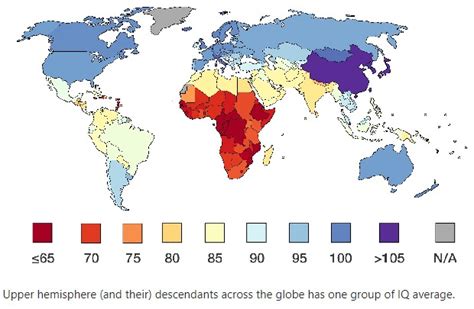Introduction
Intelligence quotient (IQ) is a score derived from standardized tests designed to assess human intelligence. It is a measure of an individual’s cognitive abilities, including problem-solving, reasoning, memory, and more. India, a diverse nation with a vast population, has an average IQ score that has been the subject of numerous studies and discussions. This article delves into the average IQ in India and explores its implications.

Average IQ Score in India
According to a 2019 report by the World Population Review, the average IQ score in India is estimated to be 82, which is below the global average of 100. This places India in the lower range of global IQ scores, alongside countries like Egypt, Mexico, and Vietnam. However, it is important to note that IQ scores can vary significantly across different regions within India.
Factors Influencing IQ Scores
Numerous factors can influence IQ scores, including:
- Genetics: Genetics play a significant role in determining intelligence, accounting for approximately 50% of the variation in IQ scores.
- Nutrition: Proper nutrition, particularly during early childhood, is essential for optimal brain development and can influence IQ scores.
- Education: Access to quality education and cognitive stimulation can significantly enhance IQ scores.
- Environment: Factors such as socioeconomic status, parental education, and cultural background can impact IQ scores.
Implications of Average IQ Scores
The average IQ score in India has implications for various aspects of society:
- Educational Attainment: Higher IQ scores are generally associated with better academic performance, including higher grades and higher levels of educational attainment.
- Economic Development: Countries with higher average IQ scores tend to experience higher economic growth and development.
- Social Mobility: IQ scores can influence an individual’s social mobility and career opportunities.
- Health Outcomes: Some studies have suggested that IQ scores may be linked to certain health outcomes, such as life expectancy and disease risk.
Challenges and Opportunities
While India’s average IQ score may be below the global average, it presents both challenges and opportunities:
Challenges
- Access to Quality Education: Many regions in India lack access to quality education, which can hinder the development of cognitive abilities.
- Socioeconomic Disparities: Socioeconomic disparities can create unequal opportunities for children, affecting their nutritional intake, environmental enrichment, and access to education.
- Cultural Factors: Cultural factors, such as the emphasis on rote learning rather than critical thinking, may limit the development of higher-order cognitive skills.
Opportunities
- Investment in Education: India can invest in improving the quality of education, particularly in rural and underserved areas, to enhance cognitive development and increase IQ scores.
- Nutritional Intervention: Addressing nutritional deficiencies, especially during early childhood, can have a positive impact on brain development and IQ scores.
- Cognitive Stimulation: Initiatives that promote cognitive stimulation and problem-solving abilities, such as reading programs and educational games, can help boost IQ scores.
- Data Collection: India needs comprehensive data on IQ scores and its various influences to understand its population’s needs and develop targeted interventions.
Conclusion
The average IQ score in India is a complex issue influenced by a multitude of factors. While India’s average IQ score may be below the global average, it presents both challenges and opportunities. By addressing the challenges and leveraging the opportunities, India can harness its human capital and create a more equitable and prosperous society.
Tables
Table 1: Average IQ Scores in Selected Countries
| Country | Average IQ Score |
|---|---|
| India | 82 |
| China | 105 |
| United States | 98 |
| Japan | 106 |
| United Kingdom | 99 |
Table 2: Factors Influencing IQ Scores
| Factor | Influence |
|---|---|
| Genetics | Accounts for approximately 50% of variation in IQ scores |
| Nutrition | Essential for optimal brain development |
| Education | Cognitive stimulation and learning opportunities enhance IQ scores |
| Environment | Socioeconomic status, parental education, and cultural background can impact IQ scores |
Table 3: Implications of Average IQ Scores
| Implication | Association |
|---|---|
| Educational Attainment | Higher IQ scores linked to better academic performance |
| Economic Development | Countries with higher average IQ scores tend to experience higher economic growth |
| Social Mobility | IQ scores can influence an individual’s social mobility and career opportunities |
| Health Outcomes | Some studies suggest a link between IQ scores and certain health outcomes |
Table 4: Challenges and Opportunities in Enhancing IQ Scores
| Challenge | Opportunity |
|---|---|
| Access to Quality Education | Investment in improving education, particularly in rural and underserved areas |
| Socioeconomic Disparities | Addressing socioeconomic disparities to create equal opportunities for children |
| Cultural Factors | Promoting critical thinking and problem-solving abilities through educational initiatives |
| Data Collection | Conducting comprehensive data collection to understand population needs and develop targeted interventions |
